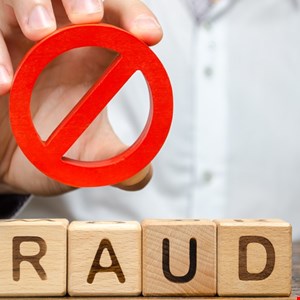- Anthropic's new AI models for classified info are already in use by US gov
- My cat loves this automatic wet food feeder, and it's on sale
- Certified and Unstoppable: Recertify with Rev Up
- Walmart's drone delivery spreads its wings to 100 more stores - is yours one?
- Meta Ray-Bans for 20% off is a great deal on one of my favorite products
Police Bust Multimillion-Dollar Holiday Fraud Gang

Police in Romania and Spain have struck a blow against a sophisticated cyber-fraud gang that tricked victims out of millions of dollars through fake ads and business email compromise (BEC) scams.
Law enforcement authorities conducted 22 house searches in Sibiu and Vâlcea, Romania, where the gang was located – although it had operations internationally, including in Spain.
They seized over €174,000 ($188,000) and 41,000 Romanian leus ($8000) in cash, 55g of gold, electronic devices including 135 mobile phones, 29 laptops, five tablets, 23 memory sticks, and 326 SIM cards, among other items.
It’s unclear where the nine suspects were arrested, but the gang is thought to have operated internationally, with most of its victims located in Spain.
Read more on holiday fraud: Holiday Scammers Made £7m in 2018.
Europol claimed the gang has made millions from tricking victims via fake ads for holiday rentals, second-hand cars and electronic devices. They apparently handed over anywhere from €200-€10,000 for items or services that didn’t exist.
The criminal operation itself was organized into three distinct groups, each with a specific role. One would coordinate operations, the other would be responsible for posting the fake ads on phishing sites as well as genuine platforms, and the third was tasked with laundering the profits.
The gang also dabbled in BEC – using malware to intercept victims’ emails before tricking them into sending funds to accounts under its control.
BEC was the second-highest grossing cybercrime type in 2023, garnering criminals over $2.9bn, according to FBI figures. Meanwhile, “Non-payment/Non-Delivery” – a category including scams where payment is made but goods or services are never received – made scammers almost $310m in the same period.
Europol claimed the sophistication of the group was “unprecedented,” and added that a “multifaceted investigation” was needed to crack the case.

